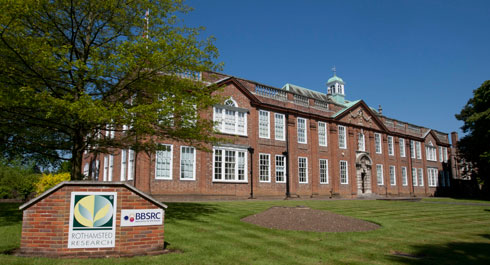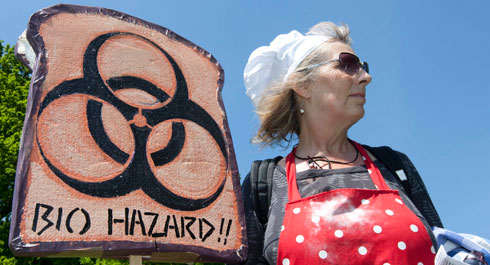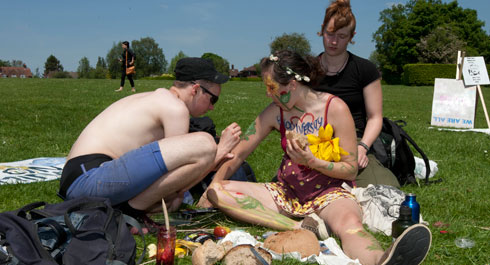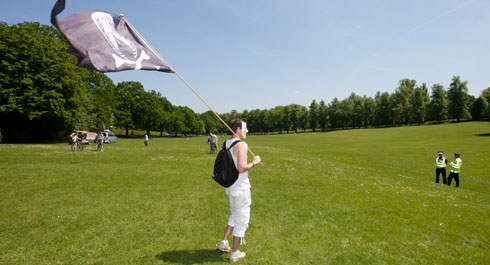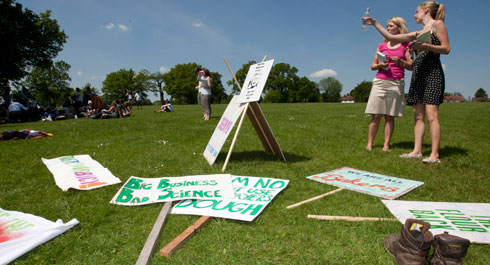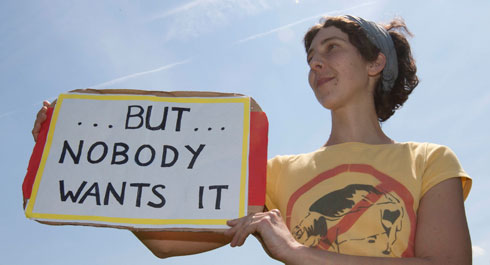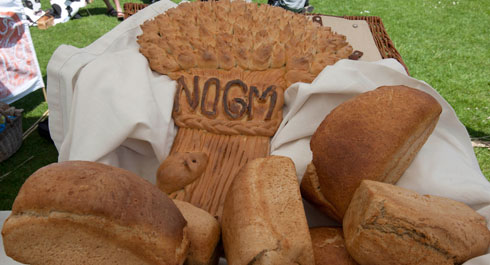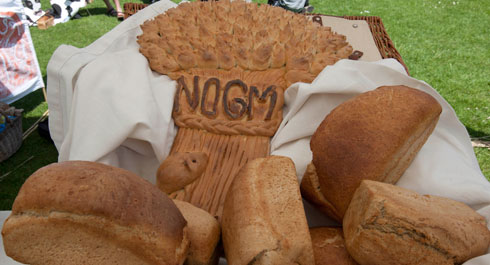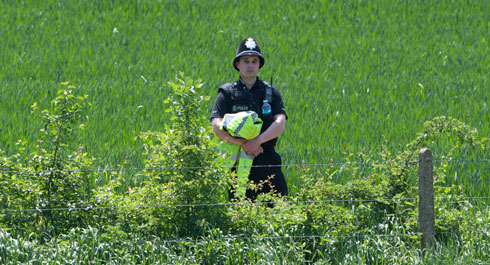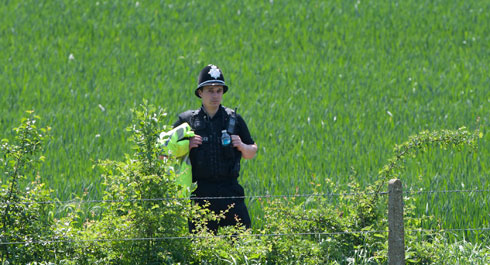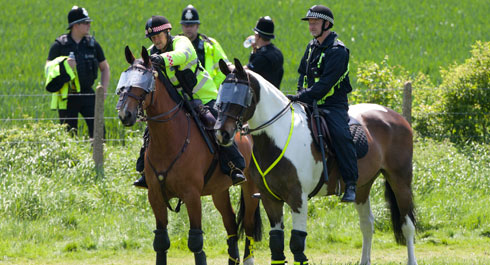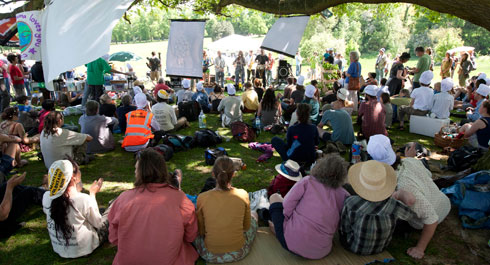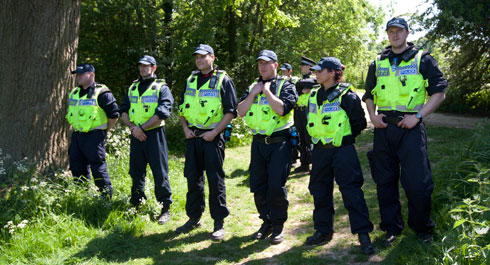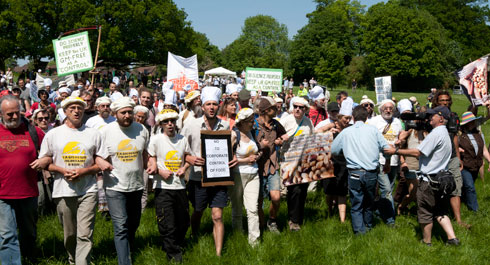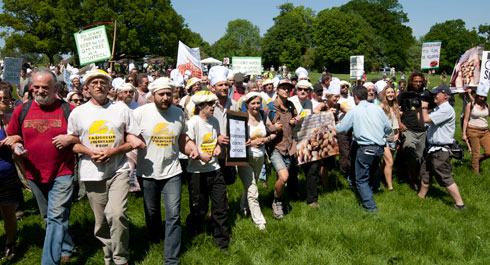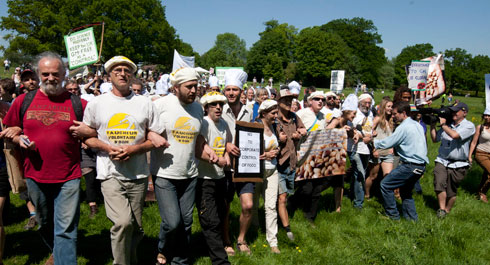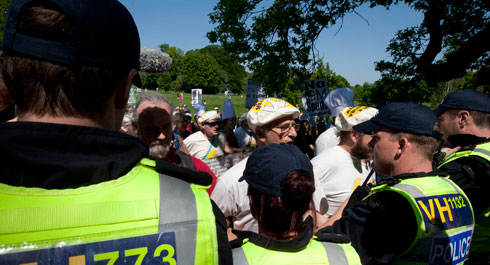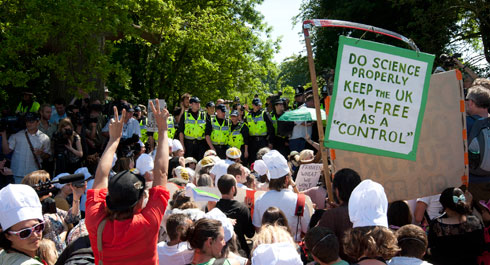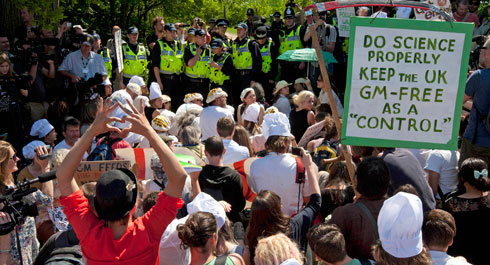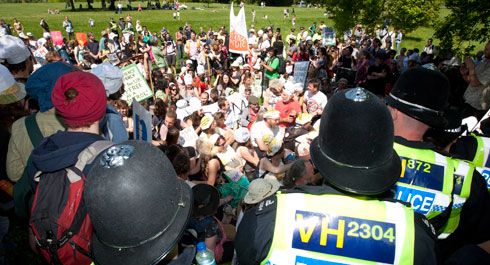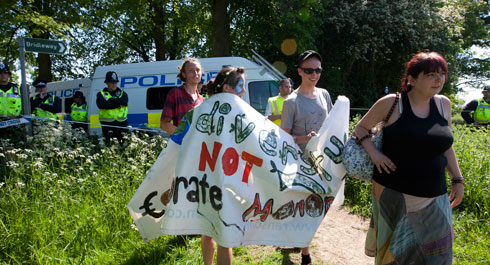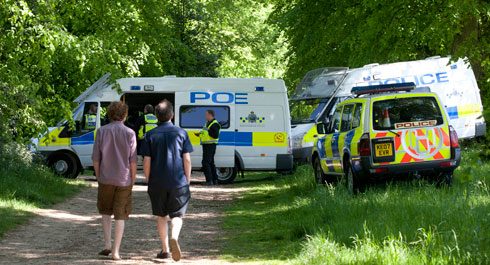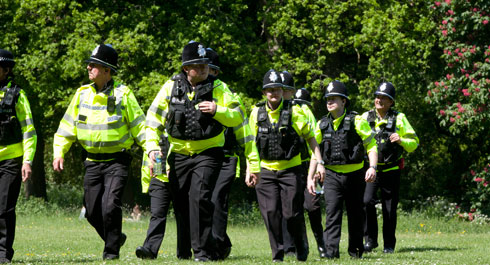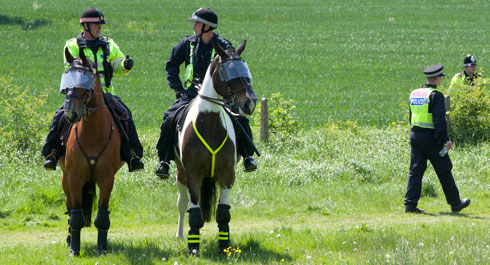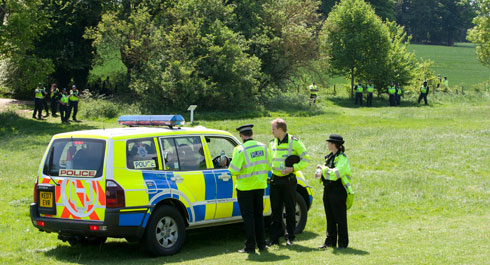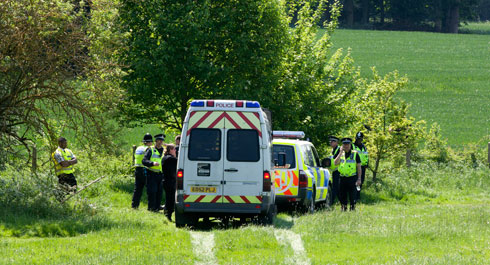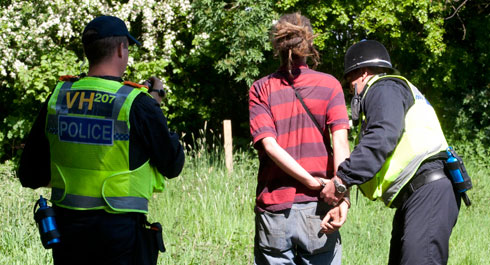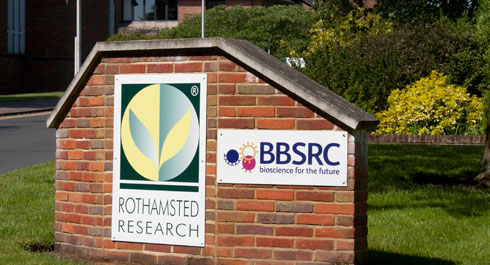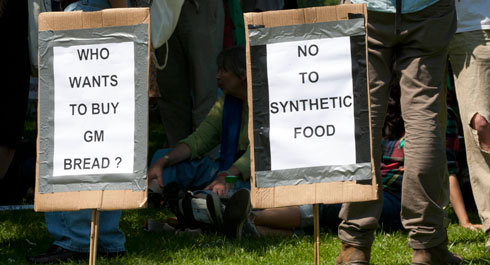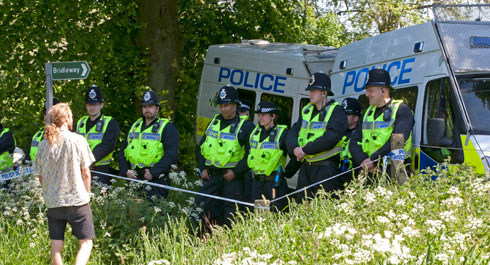VIDEO: Anti-GM wheat protest thwarted by police
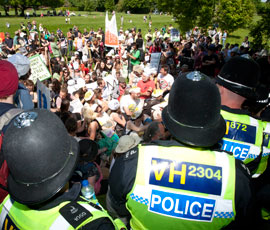
Police thwarted an attempt by protesters to destroy a field of genetically modified wheat by forming a “fortress” around the site to prevent them marching on the field.
About 200 activists gathered in the scorching sunshine beneath blue skies in a park outside Rothamsted Research on Sunday (27 March), where a experimental crop of GM wheat is being grown.
Many protestors had dressed as bakers or donned biohazard suits and masks. They were joined by a large contingent from the French anti-GM group “Facheurs Volontaires” (volunteer reapers).
Scientists at the Hertfordshire agricultural institute had feared that activists from the UK protest group Take the Flour Back would carry out their threats to “rip up” the crop.
The group had threatened to destroy the crops claiming they could “contaminate” nearby fields, which Rothamsted said was very unlikely.
The threats had prompted St Albans City & District Council to obtain an order, granted by the home secretary, making it a criminal offence to trespass on the land under the Public Order Act.
Heavy police presence
Security was intense throughout the demonstration and officers from Hertfordshire police and security forces outnumbered protesters by at least three to one.
But in the end, the activists, who had gathered in nearby Rothamsted Park surrounding the edge of the field site, were overwhelmed by a heavy police presence.
Police said two men had been arrested and questioned on suspicion of trespassing in the banned area. Otherwise, the protest passed off peacefully – to the relief of the scientists.
Kate Bell, from Take the Flour Back, said the GM trial had been “hidden behind a fortress”
“We wanted to do the responsible thing and remove the threat of GM contamination, sadly it wasn’t possible to do that effectively today,” she said.
“However, we stand arm in arm with farmers and growers from around the world, who are prepared to risk their freedom to stop the imposition of GM crops.”
During the afternoon, the activists held a picnic in the park, listened to speeches and music. They exchanged heated words with a handful of pro-GM protesters who were present.
At the end of festivities, the anti-GM campaigners linked arms and peacefully walked towards a line of police, some on horseback, who prevented them from entering the site.
Public debate
Rothamsted director Maurice Moloney had welcomed a public debate with the protesters, but said the offer had been turned down.
Prof Moloney feared the protesters could destroy years of important scientific research, and he insisted the chances of cross-pollination were extremely remote.
“We have no idea who is advising them scientifically, because it’s absolutely incorrect,” he said.
“Wheat is a self-pollinating plant so there is virtually no chance of any cross-pollination with local wheat.
“The way we have grown the wheat is desynchronised with local wheat as well, meaning it flowers at different times. It is the equivalent risk of worrying that a tornado would hit you.”
Scientists at Rothamsted genetically modified Cadenza spring wheat, developed with genes from the mint plant, so that it deters pests by releasing a chemical signal.
“As a result, the wheat produces a volatile chemical which the aphids don’t like and it makes them go elsewhere. The purpose of it is to see if we can come up with a strategy that would avoid the use of pesticides in wheat crops, as they kill other creatures like bumblebees,” explained Prof Moloney.
Not only does the chemical repel aphids, but it also attracts their natural enemies, parasitic wasps (Braconidae), which devour them.
The experimental trial was planted in March and it will be harvested in September before being repeated again next year.
Rothamsted insists that the trial, funded by the taxpayer via the government-funded Biotechnology and Biological Sciences Research Council (BBSRC), is for research only and there is no backing from a commercial organisation.
Dr Gia Aradottir, project scientist at Rothamsted Research, said: “We are pleased that the protest in Rothamsted Park this afternoon has been peaceful and that both supporters and opponents had the chance to make their voices heard.
“We have worked closely with the Hertfordshire Constabulary and are very grateful in their support to protect the illegal damage to our experiments and ensuring and facilitating this peaceful protest.”
Chief scientist
Over the weekend, John Beddington, the government’ chief scientist told BBC Radio 4’s World This Weekend: “No one would claim that GM is a way of solving the food security issue, but it is one of those tools that actually has that potential.
“The attraction of GM is that when it happens it may be able to solve some problems you can’t solve in other ways.”
Prof Beddington said more research was needed to explore the benefits of GM wheat.
“It has got to be done in very carefully controlled conditions that minimise as far as possible any problems, and that’s exactly what’s happening,” he added.
Picture gallery
Read more
See our dedicated GM page
Join the debate on GM crops in our forum

